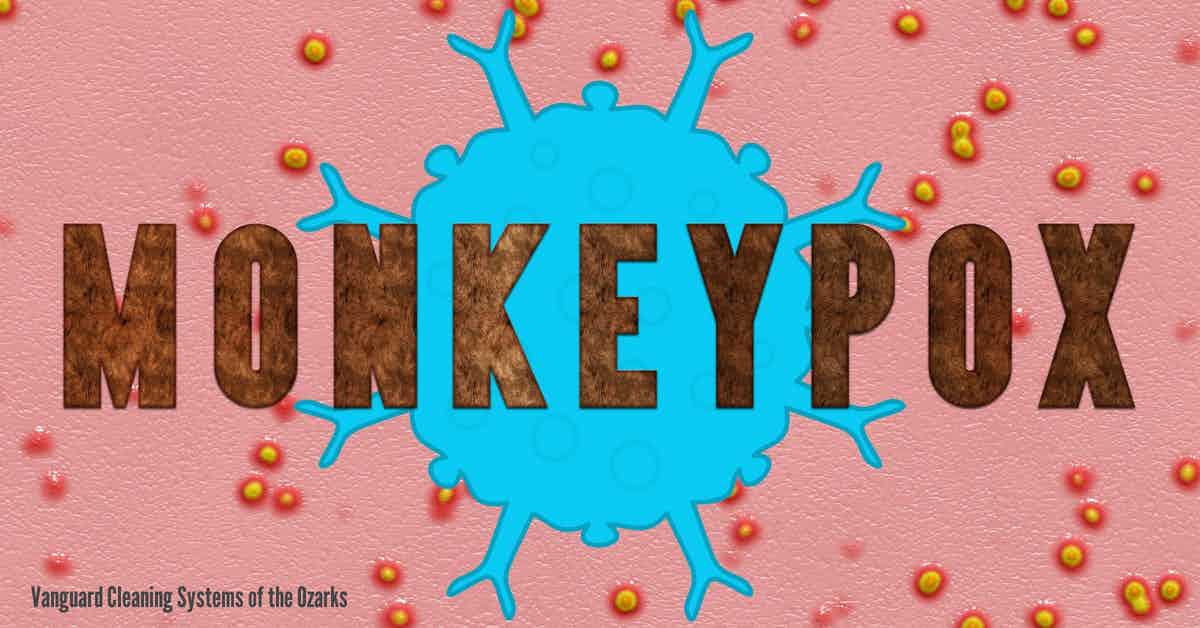A recent request for an increased number of doses of the JYNNEOS vaccine by the U.S. Department of Health and Human services underscores mounting concerns by U.S. health officials regarding an uptick in reported cases of monkeypox.

Mounting Public Health Concerns Regarding Monkeypox
In June of 2022, the HHS announced an enhanced strategy to address the increasing number of confirmed cases of monkeypox in the U.S. that consists of:
- Vaccinate and protect those at risk of monkeypox,
- Prioritize vaccines for areas with the highest numbers of patients, and;
- Guide state, territorial, tribal, and local health officials to aid their planning and response efforts.
While the infection appears to pose minimal risk to the general public, health officials are taking no chances--authorizing the release of more than 1 million doses of the JYNNEOS vaccine before the end of the year.
According to HHS Secretary Xavier Becerra;
While monkeypox poses minimal risk to most Americans, we are doing everything we can to offer vaccines to those at high-risk of contracting the virus.
This new strategy allows us to maximize the supply of currently available vaccines and reach those who are most vulnerable to the current outbreak.
Additionally, per a recent HHS press release;
HHS will provide 296,000 doses of JYNNEOS vaccine.
Of that amount, 56,000 doses will be made available immediately, and an additional 240,000 doses will be made available in the coming weeks.
HHS expects more than 750,000 additional JYNNEOS doses to be made available over the summer, and an additional 500,000 doses will undergo completion, inspection, and release throughout the fall, totaling 1.6 million doses available this year.
Monkeypox: Symptoms, Spread, and Risk
Monkeypox is spread almost exclusively by direct or prolonged close contact with an infected person, animal, or surface.
Symptoms initially manifest as a fever, followed by lesions or a rash a few days later that is typically localized on the face and hands, lasting between two and four weeks.
Those at high risk for serious outcomes or experiencing severe symptoms can be treated with antiviral medication developed to treat smallpox infections.
Due to the unexpected spread of monkeypox infections in non-endemic countries, health officials suspect that the virus has spread undetected for some time in places like the U.S.
Typically, most people are not considered to be at risk of acquiring a monkeypox infection.
However, patients with specific underlying health conditions are considered at higher risk, including:
- Those with compromised immune systems.
- Pediatric patients.
- Pregnant women, and;
- Those with concurrent infections.
Monkeypox Prevention
Preventing the spread of monkeypox will require:
- Ongoing enhanced cleaning of occupied facility areas.
- Routine fomite disinfection with an EPA-registered disinfectant.
- Occupant screening for fevers and outward signs of infection, and;
- Published policies regarding workers staying home if they are experiencing symptoms of illness.
References & Resources
- Department of Health Announces Expansion of Monkeypox Vaccines
- Biden-Harris Administration to make an additional 144,000 doses of JYNNEOS vaccine available to states and jurisdictions for monkeypox response
- Monkeypox Education Sheet
Takeaway
The continued spread of monkeypox across the U.S. (a non-endemic country) has health and government officials concerned enough to have authorized the manufacture, inspection, and release of more than 1 million doses of the JYNNEOS vaccine.
However, far more pressing public health concerns exist.
According to CleanLink News;
Rare viral diseases, such as SARS and monkeypox, can be spread by person-to-person contact.
These illnesses, however, are incredibly rare; they are not what people should worry about (nor are they what jan/san distributors should use as selling points).
The real threats are the common cold and influenza, foodborne illnesses, and nosocomial (or hospital-acquired) infections.
Presently, enhanced cleaning and infection prevention measures are prescribed for facility health and safety.
- Clean daily with a commercial-grade detergent applied with microfiber.
- Wipe down high touchpoints multiple times per day with a registered disinfectant applied with microfiber, and;
- Ensure custodians are trained in proper safety measures, including wastewater disposal, and that they have access to adequate personal protective equipment.
For many organizations, onboarding the requisite labor and material resources necessary to combat the increasing risks to occupant health and safety will likely prove cost-prohibitive, underscoring the value of outsourcing.
Outsourcing is a proven method for onboarding skilled service providers equipped with the latest training, processes, and technologies for a fraction of the price of maintaining a comparable service in-house.
Contact us today and discover why Vanguard Cleaning Systems® is the Standard of Clean® for businesses throughout Northwest Arkansas, Missouri, and Oklahoma.
In Oklahoma, dial 918-960-4450
In Arkansas, dial 479-717-2410
In Missouri, dial 417-812-9777
